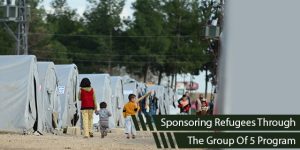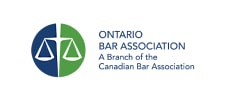What is a refugee?
Refugee protection is given to those who are in Canada and fall under one of two categories. The first is Convention refugee status, which includes those who have a well-founded fear of persecution on the basis of race, religion, nationality, membership in a particular social group, or political opinion, from which they are unwilling or unable to avail themselves of state protection.
Those who do not fall under the definition of Convention refugee may nonetheless receive protection as a Person in Need of Protection if they face a risk of torture, cruel or unusual punishment or treatment, or death in their country of origin.
A person who is outside of Canada might also be able to apply for refugee protection, though the process is more difficult. Through Canada’s refugee resettlement program, people who are outside of Canada can be either referred by the United Nations High Commissioner for Refugees (UNHCR) or privately sponsored for resettlement in Canada.This poses a more difficult route to status as a refugee because rather than being based on Canada’s international legal obligations under the Refugee Convention, Canada’s decision to admit refugees under this program is purely discretionary.
To be eligible for resettlement, a person must fall under one of two classes. The first class, the Convention refugee abroad class, includes those who fall under the definition of Convention refugee described above. The second class is the country of asylum class, and it includes people whom a visa officer has determined is in need of resettlement due to the presence of an armed conflict in their country of origin.
How do I claim refugee status from inside Canada?
The first step in making a refugee claim is to ask for refugee protection either inland or at a port-of-entry, and submit a Basis of Claim form to Immigration Refugees and Citizenship Canada within 15 days thereafter. Then, an immigration officer determines whether you are eligible to apply for refugee protection. At this threshold stage, the immigration officer will look at a number of factors including whether the refugee claimant is inadmissible to Canada because of a crime they committed, whether they already have refugee protection from another country, whether they made a previous failed application for refugee protection, among others.
If you are eligible to make a refugee claim, within around two months you will have a hearing at the Refugee Protection Division of the Immigration and Refugee Board. If your claim is accepted, you can apply for Permanent Residence. If your claim is rejected, you have the right to appeal to the Refugee Appeal Division.
What if I’m not eligible or the Refugee Appeal Division denies my claim?
If you find yourself in either of these situations, you have two options. You can apply to the Federal Court to ask to have a judge review the decision of the Immigration and Refugee Board. At this point you would ask for the court to “stay” your removal from Canada. Your other option is to apply for a Pre-Removal Risk Assessment after 12 months. The assessment will determine whether you can be safely removed to your country of origin without facing persecution, torture, or inhumane treatment.
It should also be noted that there is another option, which is to apply for permanent residency on Humanitarian and Compassionate grounds, though making this application will not result in a stay of removal proceedings and deportation proceedings may still be commenced against you.
How do I claim refugee status from outside Canada?
There is no way to directly apply for refugee status from outside of Canada. Instead, you must be referred, either by the UNHCR or by a group of private sponsors. Once you have been referred, you simply complete the application and provide the required documentation–including a mandatory medical examination and a security clearance check–and an immigration officer will assess your claim and determine whether you meet the definition of refugee. Unlike for those who apply for refugee status from within Canada, if your claim is accepted you will receive Permanent Resident status on arrival in Canada, rather than having to apply for it.
What do I do if my claim for refugee resettlement is rejected?
Unfortunately, there is no route of appeal from a claim for refugee resettlement that has been denied. The only recourse is to apply to the Federal Court for judicial review of the decision.























